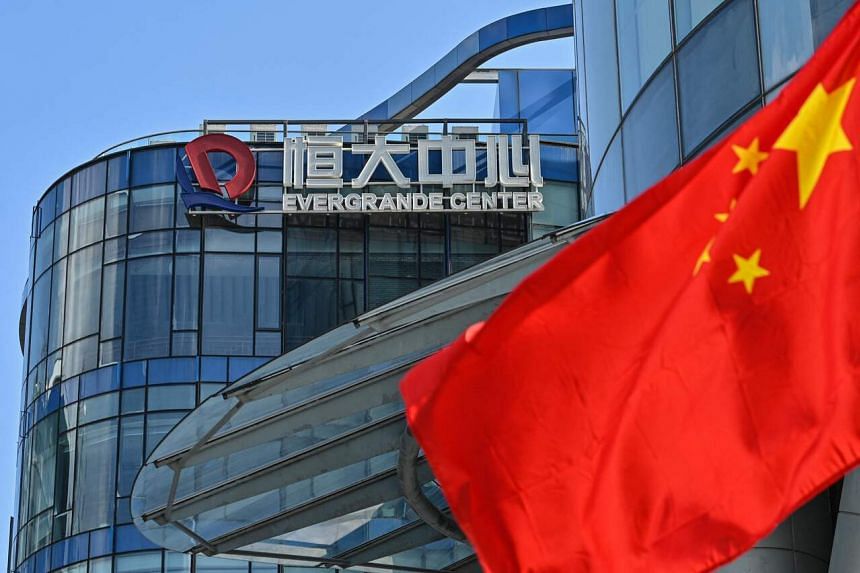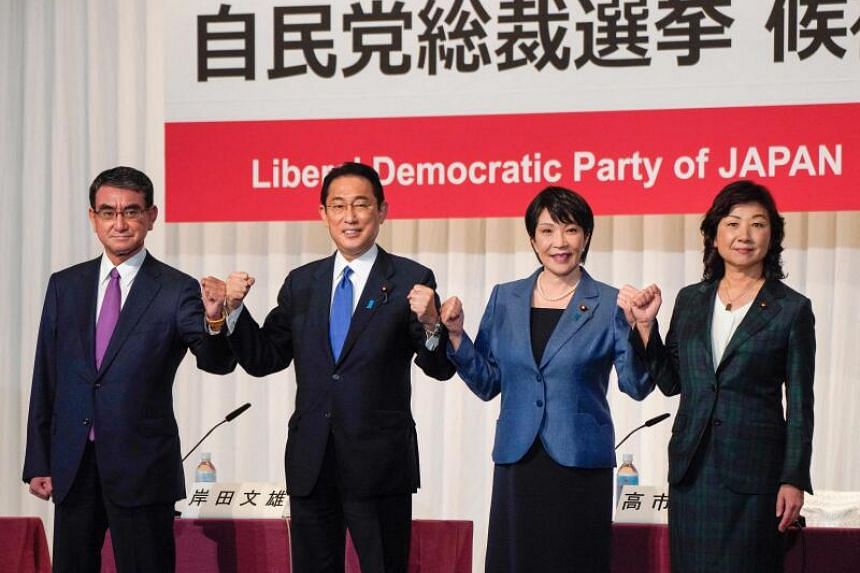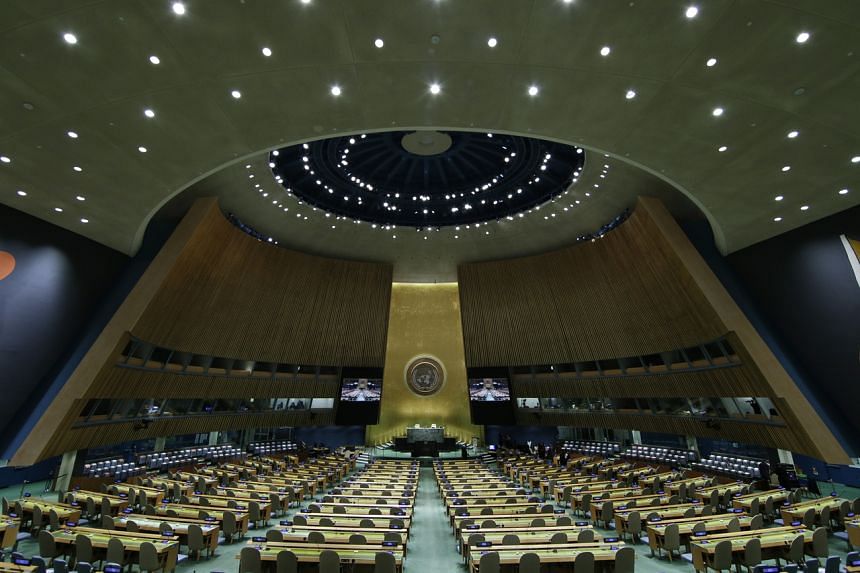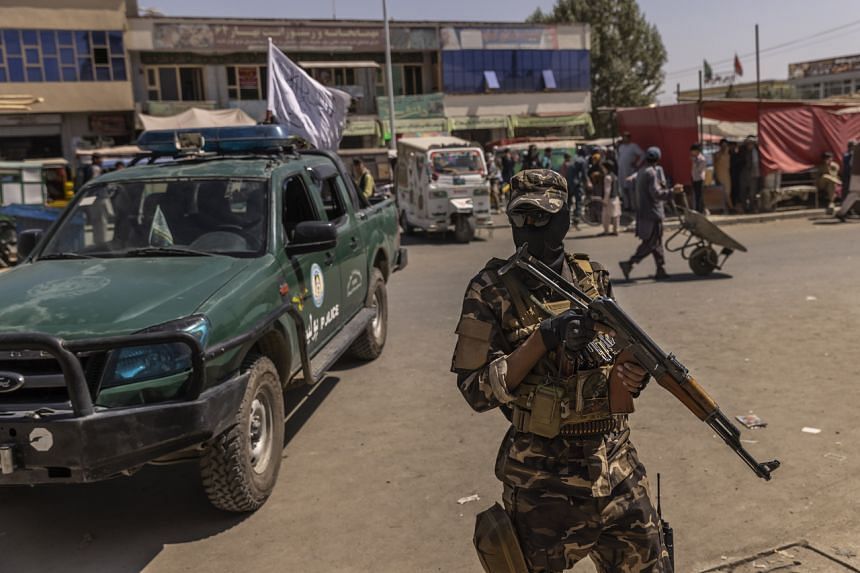Asian Insider: Aukus and Asia | Evergrande crisis
Dear ST reader,
We hope you’ve been keeping well.
In our Asian Insider newsletter this week, we examine how the Aukus trilateral defence pact affects the region and why reactions to it have been mixed. We also look at China’s troubled real estate giant Evergrande and whether it poses a systemic threat to the economy.
Aukus and Asia
Caution and cheer greeted the new defence pact between Australia, the UK and the US (Aukus) last week, writes regional correspondent Arlina Arshad, as Asia weighed the prospect of more geopolitical uncertainty against the benefit of having a counterbalancing force to China. The deal, which will provide Australia with its first fleet of nuclear-powered submarines, reflects Canberra’s deep anxiety about its future security, reports Jonathan Pearlman from Sydney. Long torn between depending on the US for security and China for its economic growth, Australia has laid this dilemma to rest and squarely decided to fall in with the US, says associate editor Ravi Velloor.
Listen to our podcast with regional correspondent Leslie Lopez on Aukus’ implications for South-east Asia.
Aukus has also cast new light on another China-counterweight – the four-nation Quad group comprising the US, Australia, India and Japan, which holds its first in-person summit on Friday (Sept 24), writes US bureau chief Nirmal Ghosh.
Meanwhile US correspondent Charissa Yong cautions in the latest instalment of Power Play that mismatched perceptions of the US as having lost its self-confidence and China as being on the ascendant could block the path to better ties between the two nations.
China’s “Lehman moment”?
All eyes are on the world’s most indebted property developer Evergrande Group, to see if it will make good on its bond payments and if China’s regulators will intervene in its liquidity crisis, reports China correspondent Aw Cheng Wei. At stake are millions of jobs, dozens of financial institutions and possibly the next Asian financial crisis, writes associate editor Ravi Velloor. Listen here as Mr Velloor explains why the Evergrande fallout may not be a “Lehman moment” that freezes the global financial system.
Worth an extra shot?
Some countries have begun administering an additional dose of Covid-19 vaccine to high-risk groups that are already fully-inoculated, sparking debate over whether booster shots are truly necessary, and if doing so is ethical and equitable. Assistant foreign editor Magdalene Fung looks at the science behind it all.
As vaccination levels rise and infections fall, countries like Indonesia and Malaysia are looking to reopen to tourists, report Indonesia correspondent Linda Yulisman and Malaysia correspondent Ram Anand. But Covid can still put a spanner in the works, as China’s holidaymakers found out over Golden Week, writes Elizabeth Law, our correspondent in Beijing
Race to be Japan’s PM
Japan’s Liberal Democratic Party has kicked off campaigning for the Sept 29 election to choose a leader to replace Yoshihide Suga as party chief and become Japan’s next prime minister. Our correspondent in Tokyo, Walter Sim, looks at the contenders for the top job, and how they will influence the nation’s future.
Follow other stories on ST Asian Insider here.
Climate change
China’s announcement that it would stop funding coal-fired power projects overseas was a welcome one, but the reality at home for one of the world’s top emitters is far more complex, writes Elizabeth Law, our correspondent in Beijing. China needs to lower its domestic dependence on coal while still driving industrial growth, a hard task.
President Xi Jinping made the announcement at the United Nations General Assembly, which is shaping up to be crucial for global climate action and will set the tone for the UN climate talks in Scotland at the end of October, writes climate change editor David Fogarty. On the sidelines of the UN General Assembly, the 39-member Association of Small Island States (AOSIS), which includes Singapore, called for more aid to fight global warming.
Back in Asia, India is pushing ahead with plans to produce green hydrogen, writes India bureau chief Nirmala Ganapathy, while Linda Yulisman reports on how Indonesia’s move to scrap its green deal with Norway will not derail efforts to protect its tropical forests.
New geopolitics of Afghanistan
Want to learn more about Afghanistan and how the Taliban’s return will affect terrorism, migration and strategic relations in the region? The US-based East-West Center will host a webinar next Tuesday (Sept 28) where experts discuss these issues, moderated by our US bureau chief Nirmal Ghosh.
Double centenarians
A pair of 107-year-old Japanese sisters, Ms Umeno Sumiyama and Ms Koume Kodama, has been certified by the Guinness World Records as the world’s oldest living identical twins. While this feat is lauded in the world’s fastest ageing country, it presents a challenge to Japan when coupled with the fertility crisis and a decline in the productive population, reports Walter Sim from Tokyo.
That’s it for today. Until next week, keep safe and keep reading!
Lim Ai Leen
Deputy Foreign Editor
Want more insights into fast-changing Asia from our network of correspondents? Get this article in your inbox by signing up here.
Source: Read Full Article









